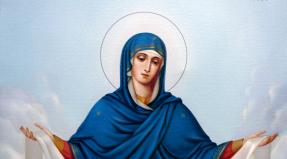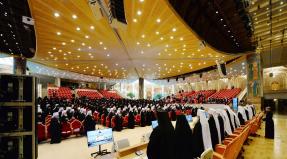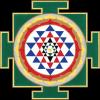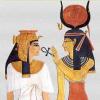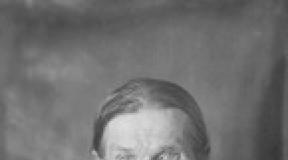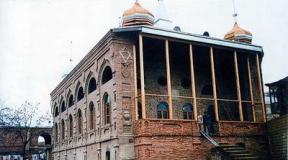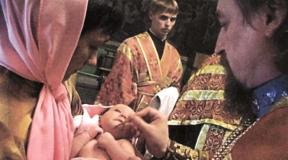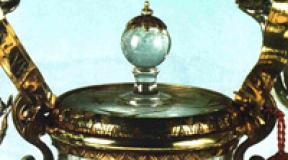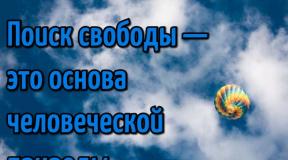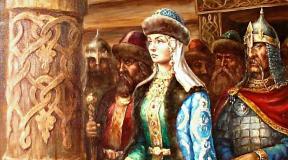Polis is the most perfect form of human communication. Aristotle's doctrine of man and state
Introduction
The political ideology of Ancient Greece, like other countries of antiquity, was formed in the process of decomposition of myth and the isolation of relatively independent forms of social consciousness. The development of this process in ancient Greece, where a slave-owning society was formed, had significant features in comparison with the countries of the Ancient East.
The crisis of the mythological worldview and the development of philosophy forced the ideologists of the polis nobility to reconsider their outdated views, to create philosophical doctrines that are able to resist the ideas of the democratic camp. The ideology of the ancient Greek aristocracy reaches its highest development in the philosophy of Aristotle, Plato and Xenophon.
Having reached extreme decomposition, to skepticism and even to anarchism and solipsism in connection with the decomposition of the polis of the classical era, the philosophical and historical position of that time (4th century BC) could not remain in this state, since it, despite on what polis expansion, developed further and further, like any thinking in general.
And during this period of decomposition of the classically slave-owning polis, there really remained one more unused position, which philosophers and historians did not hesitate to take advantage of, who did not have such courage to really believe in the final death of the polis. Despite all the horrors of the Peloponnesian War and despite the progressive decomposition of the polis, thinking people of that time still wanted, if not on facts, but only in a dream, in
utopia, nevertheless to formulate general Hellenic ideal ideas and thereby close our eyes to everything that happened then.
Such people were referred to in the 4th century. BC Xenophon, Plato and Aristotle.
The purpose of this essay is to consider the concepts of "state" and "citizen" in Aristotle, Plato and Xenophon.
Main part
Aristotle's concepts of "state" and "citizen"
In Aristotle's treatise "Politics", society and the state do not essentially differ.
The state appears in his work as a natural and necessary way of human existence - "communication of people like each other for the best possible existence." And "communication, which naturally arose to satisfy everyday needs, is a family," 1 says Aristotle.
For Aristotle, the state is a kind of whole and the unity of its constituent elements, but he criticizes Plato's attempt to "make the state overly united." The state consists of many elements, and excessive striving for their unity, for example, the community of property, wives and children proposed by Plato, leads to the destruction of the state.
The state, notes Aristotle, is a complex concept. In its form, it is a certain kind of organization and unites a certain set of citizens. From this point of view, we are no longer talking about such primary elements of the state as the individual, family, etc., but about the citizen. The definition of the state as a form depends on who is considered a citizen, that is, on the concept of a citizen. A citizen, according to Aristotle, is one who can participate in the legislative and judicial power of a given state.
The state, however, is a collection of citizens sufficient for a self-sufficient existence.
According to Aristotle, man is a political being, that is, social, and he carries an instinctive desire for "cohabitation".
A person is distinguished by the ability to an intellectual and moral life, "a person is by nature a political being." Only a person is capable of perceiving such concepts as good and evil, justice and injustice. The first result of social life, he considered the formation of a family - husband and wife, parents and children. The need for mutual exchange has led to communication between families and villages. This is how the state arose.
Having identified society with the state, Aristotle was forced to start looking for elements of the state. He understood the dependence of the goals, interests and nature of people's activities on their property status and used this criterion to characterize various strata of society. According to Aristotle, the poor and the rich "turn out to be elements in the state that are diametrically opposed to each other, so that, depending on the preponderance of one or another of the elements, the corresponding form of the state system is established."
He singled out three main strata of citizens: the very wealthy, the extremely poor, and the average, standing between the one and the other. Aristotle was hostile to the first two social groups. He believed that the basis of the life of people with excessive wealth is an unnatural kind of profit from property 1. In this, according to Aristotle, not the desire for a "good life" is manifested, but only the desire for life in general. Since the thirst for life is irrepressible, the desire for means of satisfying this thirst is also irrepressible.
Putting everything at the service of excessive personal profit, "people of the first category" trample underfoot social traditions and laws.
Striving for power, they themselves cannot obey, thus disturbing the peace of state life. Almost all of them are arrogant and arrogant, prone to luxury and bragging. The state is created not in order to live in general, but mainly in order to live happily.
Perfectionthe same human the perfect citizen is assumed, and the excellence of the citizen, in turn, is the perfection of the state. Moreover, the nature of the state is "ahead" of the family and the individual. This deep idea is characterized as follows: the perfection of a citizen is determined by the quality of the society to which he belongs: who wants to create perfect people must create perfect citizens, and who wants to create perfect citizens must create a perfect state.
The state is formed through moral communication between people. The political community relies on citizens' like-mindedness regarding virtue. As the most perfect form of living together, the state precedes the family and the village, that is, it is the purpose of their existence.
“The state is not a community of residence, it is not created to prevent mutual grievances or for the sake of convenience of exchange. Of course, all these conditions must be present for the existence of the state, but even with all of them taken together, there will still be no state; it appears only when communication is formed between families and clans for the sake of a good life ”1.
Aristotle believed that the condition for the existence and development of civil society is the state. That is, the state is primary as an idea of \u200b\u200bthe development of society.
It should be recognized as correct Aristotle's thought that the development of society already at the family level carries the idea of \u200b\u200bthe state as its first and final goal, as a complete, self-sufficient form of society
A citizen is also such not by virtue of the fact that he lives in one place or another: “after all, metecs and slaves also have a place of residence along with citizens, and equally not citizens and those who have the right to be a plaintiff and a defendant, since this is used and foreigners on the basis of agreements concluded with them (this is the right they enjoy). As for the tags, in many places they do not have this right in full, but they must choose their prostate, so they do not fully participate in this kind of communication. And about children who have not reached the age of majority and therefore not included in the civil lists, and about elders released from the performance of civil duties, it must be said that both are citizens only in a relative sense, and not unconditionally; and to the first one will have to add "free from duties" citizens, and to the second - "those who have passed the age limit" ... But we set ourselves the task of defining the concept of a citizen in the absolute sense of the word "3.
Best of all, the unconditional concept of a citizen can be defined through participation in court and power. Aristotle attributed to citizens all those who participate in the court and the popular assembly, those persons who are endowed with suffrage, who can participate in court proceedings and serve 2. The National Assembly of Athens, ecclesia, since the time of Ephialtos and Pericles, has become the main organ of democratic power. However, it is quite indicative that Aristotle had to challenge the point of view according to which a participant in a national assembly and a court is not a position and, therefore, has nothing to do with state administration.
Consequently, the Athenians did not associate their civil status with compulsory participation in state power. Most likely, they saw the organs of the civil community in the assembly and the court. It is important to note that the popular assembly is a structured community; it is split into philes and demos. They naturally form the primary public opinion on all significant issues. This opinion has the character of a public moral court.
Thus, the voice of the popular assembly is the voice of civil society, to which the authorities are sensitively listening. To manipulate the people, one must fall in their tone, one must publicly recognize the system of its values \u200b\u200bas the basis of one's leadership.
“In practice, a citizen is the one whose parents - both father and mother - are citizens, and not just one of them. Others go even further in this definition and require, for example, that the ancestors of a citizen in the second, third and even more distant tribes were also citizens ”1.
A citizen is in the same relationship to the state as a seaman on a ship to the rest of the crew. Although the sailors on the ship occupy a different position: one of them rowing, the other is at the helm, the third is the assistant helmsman. "The well-being of sailing is a goal that all seafarers aspire to as a whole."
The likes and dislikes of society are what the authorities must take into account when making decisions. Even the direction upstream is determined by the course of the current.
The state as a complex unity has its own anatomy, an internal structure, the destruction of which leads to its death. The strength of a state directly depends on the strength of its structural units. They are parts of the state, but not identical to it in quality, lead a relatively independent existence, have their own goals and natural laws of development.
The social world is a collection of active individuals and their connections. The qualities of individuals determine the quality of society and the state. This is how Aristotle thinks, since the best, happy state deduces from a virtuous, reasonable way of life the majority of its citizens.
The tasks of the state, according to Aristotle, should be named:
1. food;
2. crafts;
3. weapons;
4. a known reserve of funds for their own needs and for military needs;
5. care of religious worship, that is, what is called priesthood;
6. the most necessary is a decision about what is useful and what is fair in relation to citizens among themselves.
"These are the things that every state needs" 1, - notes
Aristotle.
The state should consist of parts corresponding to the listed tasks. Hence, there must be a certain number of farmers in it, who would supply it with food, artisans, military force, wealthy people, priests and people who make decisions about what is just and useful.
The state is the political structure of society. From this point of view, the question of primacy disappears as meaningless, since the part cannot be compared with the whole. Civil society is a set of certain social ties, structures, institutions and institutions, which at the same time characterize the stage in the development of statehood.
Therefore, civil society, taken by itself, is an abstraction. Turtle without shell, mollusc without shell 1. In reality, however, it as an independent phenomenon - before, outside and without interaction with the state - never existed anywhere. But the converse statement is also quite true: a state without the presence of one degree or another, at least in the smallest, developed infrastructure of civil relations cannot exist. A state without civil society is the same as a person without internal organs, a tree without a core.
As noted above, Aristotle defined the state through the basic concept of "communication". Communication is the essence of human nature as a social animal.
According to Aristotle, the state is the highest form of human communication; it completes the development of society, being its goal and result at the same time. What is the specificity of this communication? This is a hierarchical communication that organizes society according to the principle of domination and subordination, and society is understood as a union of free people. It turns out that citizens are units that form both society, making it civil, and the state, making it democratic.
An individual with his own interests is the primary element of civil society. But, seeing in others a means of satisfying his egoism, the individual realizes his dependence on them, therefore he gives his goals the form of the universal. For example, demanding freedom for himself, he elevates freedom to a principle, that is, demands it for everyone. Working for his own good, the individual, willy-nilly, through the form of the universal, satisfies the desire of others for the good.
In the period of the late polis structure, Aristotle writes the work "Politics" after Plato, creating an ideal structure of politics. For Aristotle, the polis was an excellent political structure.
From this, the desire for excellence and self-improvement was formed. In the ideal city of Aristotle, citizens do not work, do not engage in trade. They perfect their bodies for battle when they are young; when they already become people "aged", then they must be politically active. It was the concept of "autarkos" - the territory of the policy must exactly correspond to the number of citizens (the number of citizens must be no more than 10,000 thousand people)
In the archaic period, the type of city-state developed: in the center of the city there should have been a citadel, the city was surrounded by the rural part of the settlement, which feeds the city itself, the polis was an association of equal citizens.
Meteki - the population of the policy, without citizenship, excluded from political life.
Captured slaves appear in craft and trade policies. Aristotle wrote that it would be very good if these slaves were of different tribes. Citizens are engaged in science and sports, while meteki - a despicable business - trade.
Citizens armed themselves - hoplite - the weapon of a citizen, bought with the proceeds from the land.
"The population of the polis," wrote Aristotle, "should be easily visible, and its territory should also be easily visible: easily visible when applied to a territory means the same thing that it can be easily defended."
The city is in the center of the policy. The city should be the focal point among the surrounding space, from which it would be possible to send help everywhere.
Another condition is that land products, forest materials, and everything that is acquired by the state for processing is easily delivered to the city ...
Communication of the city and the entire policy with the sea is an advantage both for the security of the state and in terms of supplying it with everything it needs.
Phalanx - military order
She lined up shoulder to shoulder with shields and spears. It shouldn't have opened. It was a symbol of unity - "hekonaniya" (?), Hence the "koine" - the language of the Greeks.
Society of popular rule - citizens govern themselves, citizens of the policy do not pay taxes, their task is to defend the Motherland. The redistribution of income began.
Triarchy is a special indirect tax on ship construction.
The rich became fewer, the poor began to be hired as sailors on ships.
Dionic festivals were organized, sponsored by the rich, for which their names were knocked out on the steles, it was very honorable.
Eisfora was announced - a one-time tax on the rich. Many rich people wanted to transfer to another class, because it was very burdensome.
Type of ownership:
Aristotle summed it up by observing all philosophies about property. A piece of land could be sold by a citizen only to another citizen. The redistribution of property took place within the framework of property.
The economic, demographic, and internal political struggle of the polis, the problem of metal, was brewing.
Slavery theory... There are people who are by nature destined for slavery and are no longer fit for anything. Slavery is in the interests of both the master and the slave. The idea of \u200b\u200bpairing slaves and masters. The slave is an animated instrument (empsychon organon).
Ideal polis theory... Aristotle and his students composed 158 polities, of which 1 - Athenian - has come down to us. The results of this study are summarized in the Policy. Correct and incorrect state forms:
Monarchy - tyranny
Aristocracy - oligarchy
Polity - democracy
In the process of development, they pass one into the other.
Aristotle did not go beyond the framework of the polis, although the polis system was clearly crashing. All other types of state organization, the entire barbarian world, he characterized as a lower society that did not reach the political level.
According to Aristotle, the state is a "creation of nature", a product of natural development. It is based on the needs of people. Polis is a society, therefore Aristotle defines a person as a "social" or "political animal". A person cannot live alone, he needs contacts, communication with his own kind, in association with them. There are several stages of unification. The first type of association is the family, which consists of a man, a woman and children. Further, a large (extended) family, consisting of several generations of blood relatives with lateral branches. Then a village or hamlet. Finally, the policy.
As the circle of association expands, becomes more complex, and ascends to the steps of social life, the number of benefits received by a person from communication, as well as his safety, increases. The gain comes from the division of labor.
Polis is the highest form of association. It is large enough to satisfy all human needs. At the same time, he is “small enough for a good organization based on personal communication and does not turn a person into a part of a giant structure in which his role is practically reduced to zero. The purpose of the policy is the benefit of citizens. "
Polis is an association of people and a territory ruled by one government, having one constitution. The unity of power and territory gives it integrity.
Polis is communication of free and, in a sense, equal people who have reason and are able to self-determine, controlling their actions. The power in the policy extends to free and equal citizens.
Discussions about freedom and equality do not apply to slaves. The philosopher considers slavery to be natural and necessary. A slave is devoid of intelligence, to control him is as natural as to be pushed around by an ox. Some people are by nature slaves, while others are free. This applies not only to individuals, but to entire nations. For example, Aristotle is convinced that the Hellenes were born free, barbarians are by nature slaves, their conquest is natural. At the same time, the philosopher considered the enslavement of the Greeks by the Greeks as a result of captivity or for debts, which was then normal and widespread, unacceptable.
Polis is the most perfect form of public association. She is an organic whole and stands above the family and the individual. Its scope is very wide. However, the unity of the policy should not go to the detriment of the family and the individual citizen.
Polis as understood by Aristotle. (addition) * from the tutorial *
"The population of the polis," wrote Aristotle, "should be easily visible, and its territory should also be easily visible: easily visible when applied to a territory means the same thing that it can be easily defended."
The city is in the center of the policy. The city should be the focal point among the surrounding space, from which it would be possible to send help everywhere.
Another condition is that land products, forest materials, and everything that is acquired by the state for processing is easily delivered to the city ...
Communication of the city and the entire policy with the sea is an advantage both for the security of the state and in terms of supplying it with everything it needs.
Keywords
ARISTOTLE / POLITIES / FORM OF THE STATE / LAW / ARISTOTLE / POLITIA / FORM OF GOVERNMENT / LAWannotation scientific article on philosophy, ethics, religious studies, the author of the scientific work - Belyaeva O.M.
The goal of the state, according to Aristotle, is the common good, the achievement of happiness by every citizen. In this case, the policy is considered as a political communication of free and equal people. The most correct form of government is a polity in which the middle class dominates everything.
Related topics scientific works on philosophy, ethics, religious studies, the author of the scientific work - Belyaeva O.M.
-
I. Kant's political and legal views
2014 / Belyaeva O. M. -
The genesis of the idea of \u200b\u200bconstitutionalism in the teachings of Plato and Aristotle
2016 / Likhter Pavel Leonidovich -
Ancient Greek historians and philosophers about the essence of democracy, its conflict with tyranny and oligarchy and a modern view of this process
2015 / Isaev Boris Akimovich -
Formation of ideas about social harmony: Socrates, Plato, Aristotle
2016 / Viktor Danilovich Mikhailov -
Aristotle and the History of Sparta: Some Problems of Chronology
2010 / Eremin Andrey Yurievich -
Plato and Aristotle on the "Law of War"
2015 / Lobanov Evgeny Viktorovich -
Aristotle's Athenian Polity on the Best Form of Government
2016 / Kulagin V.V., Lezina E.P. -
Historical development of the problem of classification of the form of government
2017 / Ervin Alibekovich Akhverdiev -
Ideas of Nationalism in the Works of Plato and Aristotle
2016 / Abramov Sergey Vitalievich -
The origins of the idea of \u200b\u200bprogress in the creative heritage of European thinkers of antiquity and the Middle Ages
2011 / Nikulina Natalia Nikolaevna
In this article there is an analysis of Aristotle's views on the best government system. Some attention is paid to criticism at Plato's project of an ideal state (Plato was Aristotle's teacher). Also, in the article there is an analysis of this thinker’s statements on the right and wrong government systems; we also elicit any state's aim and nature, politics' tasks; in the article we describe the philosopher's views on the slaveholding system and private ownership. Aristotle's political and legal views found their reflection in his works: “Athenian politia”, “Nickomakhov’s ethics”, “Politics”. In Aristotle's judgment, the aim of state is common good and happiness of its every citizen. At the same time, city-state (polis) is considered as a political communication of free and equal people. The most correct form of government is politia where the middle class of people predominates in all spheres, to be precise, the middle class as the majority rules in the interests of common good. Politia is a specific kind of confusion of oligarchy and democracy deprived of extremes and disadvantages. Aristotle was one of the supporters of the organic theory of state’s origin; he pointed out that state was the product of natural development that was conditional on the nature of a man himself: “The man is a political and social being”. The state itself is the end of genesis of the man’s political nature. Aristotle criticizes Plato’s project of an ideal state (“Plato is my friend, but I appreciate truth more”) because of his attempt to make a state “excessively united”. So, community of ownership, wives and children proposed by Plato will result, in the last analysis, in degeneration of the state itself, the philosopher thought. Plato was against private ownership, but Aristotle advocated the maintenance of ownership; he pointed out that “private ownership is rooted in the human nature, in the man’s love to himself”. So far as Aristotle was an aristocrat, he had rather determined views on the slavery as well. Slavery was ethically justified; the relations between master and slave had a family nature. Moreover, the notion of a citizen itself is formed by the philosopher from the person's ability to participate in the legislative and judicial activities of the state. Aristotle was one of the most universal philosophers in the history of mankind. The appearance of metaphysics as a method of cognition and the tradition of Athenian school - a lyceum - are connected exactly with his name nowadays. Really, in Aristotle's works there is interpretational synthesis of all the ancient theories that is of especially great interest in our time. As never before the critics of democracy is actual now (in Aristotle's view, it is one of the worst government systems along with tyranny), in the period of global crisis and fall of universal values. Thanks to his incontestable authority, Aristotle's views became starting points for the whole political and legal thought not only on the West, but on the East too, right up to the beginning of the XVIII century.
Text of scientific work on the topic "Polity as the best form of government, according to Aristotle"
BULLETIN OF PERM UNIVERSITY
Legal Sciences
Issue 1 (19)
POLITIES AS THE BEST FORM OF GOVERNMENT, ACCORDING TO ARISTOTEL
O. M. Belyaeva
Candidate of Law, Associate Professor, Associate Professor of the Department of Theory and History of State and Law Kazan (Volga Region) Federal University 420008, Republic of Tatarstan, Kazan, st. Kremlin, 18 E-mail: [email protected]
The goal of the state, according to Aristotle, is the common good, the achievement of happiness by every citizen. In this case, the policy is considered as a political communication of free and equal people. The most correct form of government is a polity in which the middle class dominates everything.
Key words: Aristotle; polity; the form of the state; right
Aristotle (384-322 BC) - the greatest ancient Greek thinker-encyclopedist, student of Plato, educator of Alexander the Great, founder of Lyceum (in another transcription - Lyceum, or peripatetic school), the founder of formal logic. It was Aristotle who created the conceptual apparatus that still permeates the philosophical lexicon and the very style of scientific thinking. For about 20 years Aristotle studied at the Academy of Plato, and then largely departed from the views of the teacher, saying: "Plato is my friend, but the truth should be preferred." The birthplace of Aristotle is the Greek city-city of Stagir in Thrace, therefore sometimes Aristotle is called Stagirite. The scientific fate of Aristotle is truly outstanding, he remains, perhaps, the most relevant and widely read author for many hundreds of years.
Charles de Gaulle (1890-1970), President of France, General, wrote at one time: "... in the basis of the victories of Alexander the Great, we always, in the end, find Aristotle." The authority of Aristotle was so great that before the beginning of modern times they referred to the work of Aristotle as something unshakable and beyond any doubt. So, when a certain Jesuit professor (XVIII century) was asked to look through a telescope and make sure that there are spots on the Sun, he answered the astronomer
© Belyaeva O.M., 2013
Kircher: “It's useless, my son. I have read Aristotle twice from beginning to end, and I have not found any hint of sunspots in him. Therefore, there are no such spots ”.
Among the works of Aristotle, which make up the so-called "Aristotle Corpus", it is necessary to highlight the following cycles:
Logic (Organon): "Categories", "On interpretation", "First analytics", "Second analytics", etc .;
On nature: "Physics", "On the soul", "On memory and recollection", etc .;
Metaphysics: "Metaphysics";
Ethics and politics: "Nicomachean ethics", "Politics", "Athenian polity", etc .;
Rhetoric: "Rhetoric", etc.
Thus, when writing the Politics (c. 329 BC), Aristotle did a gigantic work, studying, together with his students, the constitutions of 158 Greek city-states (!). Aristotle's works were based on a comparison and analysis of the existing basic laws of city-states available to him. Until that time, attempts of this kind to compare legislation were not only not undertaken, but simply did not occur to anyone. Thus, Aristotle laid the foundations for the future methodology of political science.
About the state
Since the beginning of politics in Aristotle is ethics, therefore the objects
political science are wonderful and fair.
Aristotle considers the state to be a political organization of society, a product of natural development and at the same time the highest form of communication, and a person, accordingly, a political being. “The state,” he argues, “belongs to that which exists by nature ... and man by nature is a political being, and the one who, by virtue of his nature, and not because of random circumstances, lives outside the state, is either underdeveloped in in the moral sense, a being, or a superman ... such a person by nature only craves war.
In all people, nature has introduced the desire for public communication, and the first who organized this communication, rendered man the greatest benefit. Person,
who has found his completion is the most perfect of living beings and, conversely, a person who lives outside the law and law is the worst of all. "
“Since every state is a kind of communication, every communication is organized for the sake of some good, then, obviously, all communication strives for this or that good, and more than others and towards the highest of all good, the communication that is most important of all and embraces all other communication. This communication is called the state or political communication. "
Politics is science, knowledge of how best to organize the joint life of people in the state. The politician must take into account that people have not only virtues, but also vices. Therefore, the task of politics is not the upbringing of morally perfect people, but the upbringing of virtues in citizens. The virtue of a citizen lies in the ability to fulfill one's civic duty and in the ability to obey authorities and laws. Therefore, the politician must look for the best, i.e. the most appropriate state structure.
Aristotle criticizes the communist project of Plato's ideal state, in particular for its hypothetical
sky "monolithic" unity. In contrast to Plato, Aristotle argues that the community of ownership established in the commune does not at all destroy the basis of social division, but, on the contrary, strengthens it many times over. Naturally, selfishness inherent in man, caring for the family, caring first about one's own, rather than the general, is the objective reality of state being. The communist, utopian project of Plato, which denies family and private property, deprives the necessary incentive of the political activity of the individual.
And the community of property, wives and children proposed by Plato will lead to the destruction of the state. Aristotle was a staunch defender of individual rights, private property and the monogamous family, as well as an advocate of slavery.
Being an adherent of the slave system, Aristotle closely linked slavery with the issue of property: the very essence of things is rooted in the order, by virtue of which, from the moment of birth, some creatures are destined for submission, while others for dominion. This is a general law of nature and animate beings are subject to it. According to Aristotle, “who by nature does not belong to himself, but to another, and yet still a man, is by nature a slave. A person belongs to another if he, while remaining a person, becomes property; the latter is an active and separate tool. " At the same time, slavery in Aristotle is ethically justified, because the slave is devoid of virtue. At the same time, the relationship between master and slave is, according to Aristotle, an element of the family, not the state.
The goal of the state, according to Aristotle, is the common good, therefore participation in the management of state affairs should be general. "The purpose of the human community is not just to live, but much more to live happily." In other words, the goal of the state is to achieve happiness for every citizen. In this case, the policy is considered as a political communication of free and equal people.
Aristotle continues Plato's doctrine of the state as an unification of people for mutual assistance and cooperation, politics as an art to provide people with the highest justice and law as its most complete and perfect expression. Law embodies political justice. Consequently, the primary task of law is to protect the life and property of each person. The law must correspond, according to Aristotle, political justice and law. Right
It is the yardstick of justice that regulates the norm of political communication. Society cannot exist without laws and rights: "a person who lives outside the law and right is the worst of all." Aristotle justifies legal coercion: "most people obey necessity rather than reason, and fear of punishment more than honor."
If Plato is a radical, uncompromising thinker, he loves extremes, in his works - a flight of imagination, courage, refined style, then Aristotle is an opponent of all extremes, a supporter of the middle in everything, his rule is the thoroughness and validity of research in any area.
“Each state has three constituent parts: very wealthy,
the extremely poor and still others, standing in the middle between the two. Since, according to the generally accepted opinion, moderation and the middle are the best, then, obviously, the average wealth of all goods is the best. When it is there, it is easiest to obey the reasoning; on the contrary, it is difficult to follow these arguments for a person who is super-beautiful, super-strong, super-noble, super-rich, or, conversely, a person who is super-poor, super-weak, super-low in his social position. People of the first type become predominantly impudent and big bastards. People of the second type are often made villains and petty scoundrels. And of the crimes, some are committed because of arrogance, others because of meanness.
Thus, some are not able to rule and are able to obey only the power that appears in the masters over
slaves; others are not capable of submitting to any authority, and only know how to rule in the way that masters rule over slaves. "
So, it is clear that the best public communication is the one that is achieved through the middle, and those states have a good system, where the middle ones are represented in greater numbers, where they - at best - are stronger than both extremes, or, in any case, each of them in separately. Connected with one extreme or the other, they provide balance and prevent the preponderance of opponents. Therefore, the greatest prosperity for the state is that its citizens have average, but sufficient property, and in those cases when some own too much, while others have nothing, either extreme democracy arises, or pure oligarchy, or tyranny, namely influenced by opposite extremes. After all, tyranny is formed both from an extremely dissolute democracy and from an oligarchy, much less often from the middle types of the state system and those that are akin to them.
About the form of the state
The form of the state in the teachings of Aristotle attaches a decisive importance. It includes the form of the state system, the type of state government that depends on the specific conditions of a particular country or people. Those forms (monarchy, aristocracy, polity), in which the rulers have in mind the general benefit, are correct. Those (tyranny, oligarchy, democracy) who mean only the good of the rulers are wrong.
The "correctness" of the system in Aristotle does not at all depend on the number of ruling parties. And this is another feature of the thinker's teaching.
The most correct form is polity, in which the majority rules in the interests of the common good. Politya is a constitutional moderate democratic republic, whose leaders are able to combine freedom with order, courage with wisdom. Polity is a mixed form of government that arises from a combination of two irregular forms: the oligarch
chii and democracy. So, the principle of creating an ideal form of government is a mixture of two irregular forms. Aristotle described polity as follows: "it is extremely rare and in a few." In particular, discussing the possibility of establishing polity in contemporary Greece, Aristotle came to the conclusion that such a possibility is small. In the polity, the majority rules in the interests of the common good. Polity is the "middle" form of the state, and the "middle" element here dominates in everything: in morals - moderation, in property - average income, in power - the middle stratum. "Only where in the composition of the population the averages have an advantage either over both extremes, or over one of them, the state system can count on stability." For the oligarchy exacerbates the existing inequality of property, and democracy excessively equalizes the rich and the poor.
"Deviation from monarchy gives tyranny, deviation from aristocracy - oligarchy, deviation from polity - democracy, deviation from democracy - ochlocracy," wrote Aristotle.
About rhetoric
Plato did not appreciate rhetoric highly: “untrue art”, “juggling with words”; Aristotle devotes to her a whole work of the same name, where he discusses in detail the content of a publicly delivered speech, the style, manner of speech of the orator. He believes that it is necessary to teach oratory, for this is, in his opinion, part of civic education. Politics can become the property of all citizens largely thanks to oratorical eloquence. Honed oratory should be put at the service of fostering political culture, law-abiding behavior, and a high level of legal awareness.
Aristotle changed the style of presenting political and legal ideas - Plato's dialogues were replaced by the scientific treatise of Aristotle. It was from Aristotle that the teaching of state studies began. Aristotle is the founder of political science and the main developer of its methodology.
It so happened that not all of Aristotle's works have come down to us. Moreover, some
some of the works were not published by him during his lifetime, and many others were forgedly attributed to him later. But even some passages of those works that undoubtedly belong to him can be questioned, and already the ancients tried to explain to themselves this incompleteness and fragmentary nature by the vicissitudes of fate of Aristotle's manuscripts. According to the legend preserved by Strabo and Plutarch, Aristotle bequeathed his writings to Theophrastus, from whom they passed to Nelius of Skepsis. The heirs of Nelius hid the precious manuscripts from the greed of the Pergamon kings in the cellar, where they were badly damaged by dampness and mold. In the 1st century BC. e. they were sold at a high price to the wealthy and book-lover Apellikon in the most pitiable condition, and he tried to restore the damaged places of the manuscripts with his own additions, but not always successfully. Subsequently, under Sulla, they ended up among other booty in Rome, where Tyrannian and Andronicus of Rhodes published them in their present form. According to some researchers, this story can only be true with respect to a very small number of secondary works of Aristotle. At the same time, it remains only to build versions of what could have been contained in the lost part of Aristotle's manuscripts.
Bibliographic list
1. History of state-legal doctrines / otv. ed. V.V. Lazarev. M .: Spark, 2006.672 p.
2. Marchenko M.N., Machin I.F. History of political and legal doctrines. M .: Higher education, 2005.495 p.
3. Machin I.F. History of political and legal doctrines. M .: Higher education, Yurayt-Izdat, 2009.412 p.
4. Mukhaev R.T. History of political and
legal teachings. M .: Prior-publisher,
5. The Thinkers of Greece. From myth to logic: essays / comp. V.V. Skoda. Moscow: Eksmo-Press Publishing House; Kharkov: Folio Publishing House, 1998.832 p.
7. Taranov P.S. The philosophy of forty-five generations. Moscow: AST Publishing House, 1998.656 p.
8. Electronic resource: http: //ru.wikipedia. org / wiki /% C0% F0% E8% F 1% F2% EE% F2% E5% EB% FC (date accessed:
Bibliograficheskij spisok
1. Istorija gosudarstvenno-pravovyh uchenij / otv. red. V.V. Lazarev. M .: Spark, 2006.672 s.
2. Marchenko M.N., Machin I.F. Istorija politicheskih i pravovyh uchenij. M .: Vysshee obrazovanie, 2005.495 s.
3. Machin I.F. Istorija politicheskih i
pravovyh uchenij. M .: Vysshee obra-
zovanie, Jurajt-Izdat, 2009.412 s.
4. Muhaev R.T. Istorija politicheskih i pravovyh uchenij. M .: Prior-izdat, 2004.608 s.
5. Mysliteli Grecii. Ot mifa k logike: so-chinenija / sost. V.V. Shkoda. M .: Izd-vo Jeksmo-Press; Har "kov: Izd-vo Folio, 1998.832 s.
6. Pravovaja mysl ": antologija / avtor-sost. V. P. Malahov. M .: Akad. Proekt; Ekaterinburg: Delovaja kniga, 2003.1016 s.
7. Taranov P.S. Filosofija soroka pjati pokolenij. M .: Izd-vo AST, 1998.656 s.
8. Jelektronnyj resurs: http: //ru.wikipedia.
org / wiki /% C0% F0% E8% F 1% F2% EE% F2% E5% EB% FC (data obrashhenija:
POLITIA AS THE BEST FORM OF GOVERNMENT IN ARISTOTLE'S JUDGMENT
Kazan (Volga Region) Federal University 18, Kremlyovskaya st., Kazan, 420008 E-mail: [email protected]
In this article there is an analysis of Aristotle's views on the best government system. Some attention is paid to criticism at Plato’s project of an ideal state (Plato was Aristotle’s teacher). Also, in the article there is an analysis of this thinker’s statements on the right and wrong government systems; we also elicit any state's aim and nature, politics' tasks; in the article we describe the philosopher's views on the slaveholding system and private ownership.
Aristotle's political and legal views found their reflection in his works: “Athenian politia”, “Nickomakhov’s ethics”, “Politics”. In Aristotle's judgment, the aim of state is common good and happiness of its every citizen. At the same time, city-state (polis) is considered as a political communication of free and equal people. The most correct form of government is politia where the middle class of people predominates in all spheres, to be precise, the middle class as the majority rules in the interests of common good. Politia is a specific kind of confusion of oligarchy and democracy deprived of extremes and disadvantages.
Aristotle was one of the supporters of the organic theory of state’s origin; he pointed out that state was the product of natural development that was conditional on the nature of a man himself: “The man is a political and social being”. The state itself is the end of genesis of the man’s political nature.
Aristotle criticizes Plato’s project of an ideal state (“Plato is my friend, but I appreciate truth more”) because of his attempt to make a state “excessively united”. So, community of ownership, wives and children proposed by Plato will result, in the last analysis, in degeneration of the state itself, the philosopher thought.
Plato was against private ownership, but Aristotle advocated the maintenance of ownership; he pointed out that “private ownership is rooted in the human nature, in the man’s love to himself”. So far as Aristotle was an aristocrat, he had rather determined views on the slavery as well. Slavery was ethically justified; the relations between master and slave had a family nature. Moreover, the notion of a citizen itself is formed by the philosopher from the person's ability to participate in the legislative and judicial activities of the state.
Aristotle was one of the most universal philosophers in the history of mankind. The appearance of metaphysics as a method of cognition and the tradition of Athenian school - a lyceum - are connected exactly with his name nowadays. Really, in Aristotle’s works there is interpretational synthesis of all the ancient theories that is of especially great interest in our time. As never before the critics of democracy is actual now (in Aristotle’s view, it is one of the worst government systems along with tyranny), in the period of global crisis and fall of universal values.
Thanks to his incontestable authority, Aristotle's views became starting points for the whole political and legal thought not only on the West, but on the East too, right up to the beginning of the XVIII century.
Keywords: Aristotle; politia; form of government; law
Man, said Aristotle, is a political animal. This is a parent not only of his children, but also of his actions. Both vice and abstinence depend on us. Aristotle singled out ethical virtues (virtues of character) and dianoetic (intellectual: wisdom, rationality, prudence). Ethical virtues are associated with habits; dianoetic ones require special development. Aristotle explores virtues in the context of the social life of ancient society. Justice takes a special place in him. "The concept of justice means both legal and equal, and unfair means illegal and unequal [treatment of people]." Since the law prescribes virtuous behavior, for example, courage in battle, in so far as justice is the highest virtue, in which all others are contained. The doctrine of justice forms a direct transition to the state.
To achieve his goals, the individual must associate with other people. The main goal of man is striving for the good. The highest good is happiness, bliss. To achieve the Good, people create a state: it does not arise in order to live in general, but "mainly in order to live happily." Human welfare coincides with public welfare. The state is a type of communication between people. The role of the state cannot be reduced only to the organization of economic exchange. The state emerges as communication for a good life. A person cannot exist outside the state, he is a political, social being. Aristotle is well aware that a person's position in society is determined by property. It causes discontent and quarrels, reduces interest in work, deprives a person of the "natural" enjoyment of possession. Thus, he defends private property, which seemed to him the only possible and progressive, ensuring by his development the overcoming of the last vestiges of the communal social order. True, with all this, Aristotle also speaks of the need for "generosity", which requires supporting the poor, and "friendship", that is, the solidarity of the free among themselves, declares one of the highest political virtues.
Aristotle believes that historically the development of society proceeds from the family to the community (village), and from it to the state (city, polis). However, the state is logically primary, for it represents the entelechy of society. The following relations are preserved in the state: family (husband and wife, parents and children, master and slaves) and state (ruling and subordinate). This ahistorical "natural" structure of social relations perpetuates the relationship of domination and subordination, specifically - the relationship of a slave society. Aristotle stands for the "natural" origin and structure of the state, he deduces it from "human nature". “Every state is a kind of communication, every communication is organized for the sake of some good (after all, all activities have in mind the supposed good), then, obviously, all communication strives for this or that good, moreover, more than others and towards the highest of all good is the communication that is the most important of all and embraces all other communication. This communication is called the state or political communication. " Here is Aristotle's first definition of the state. For Aristotle, the state itself is a kind of communication, it is the highest form of communication between people.
The state includes farmers, artisans, merchants, hired workers, and the military. Citizenship rights, according to Aristotle, should not have not only slaves, but also the lower classes, except for the warrior and those who are members of the legislative bodies. Only these latter groups think not only about their own benefit, but also about the public good. They have the right to leisure - the main social value.
Aristotle paid much attention, along with the philosophical problems themselves, to questions of state structure. Under his leadership, many collective works were completed, including a description of one hundred and fifty-eight state structures. All forms of government, he believed, are subdivided according to the number of rulers (according to property) and according to the purpose (moral significance) of government. In accordance with the first sign, there is a monarchy, aristocracy and polity (republic) - these are the "correct" forms of government. Monarchy (royal power) - the power of one, the first and most "divine". The aristocracy is the rule of the "best" few. Polity - rule by the majority or those who represent the interests of the majority and own weapons. The middle class is the basis of polity. These correct forms of government can degenerate into "wrong" ones - tyranny, oligarchy and democracy. The tyrant does not care about the welfare of his subjects, he is the enemy of virtue, depriving people of energy, the desire to defend the common good. Oligarchy is the rule of the rich. Democracy is dominated by the majority of the poor. Both those and others use the state in their own selfish interests. According to the second criterion, Aristotle singles out as "correct" states in which those in power have in mind the general benefit, and "wrong", where only their own form is meant. The names of the forms of government, introduced by Aristotle, entered the lexicon of the theory of the state.
Aristotle in different works in different ways represents the relative value of these forms. In Nikomakhovo and Ethics, he declared the best of them to be monarchy, and the worst of the "correct" forms - polity. In Politics, he considers politics to be the best of the "correct" forms. Although the monarchy here seems to him to be "the original and most divine", at the present time, according to Aristotle, it has no chance of success.
Of all types of government, according to Aristotle, there will be one that turns out to be a deviation from the original and most divine. Tyranny, as the worst of all forms of government, is farthest from its very essence; it is directly adjacent to the oligarchy, while the most moderate of the deviating types is democracy.
There are many types of communication within the state itself.
In economic relations, Aristotle sees three types of social forms of communication: 1) communication within a single family; 2) communication within the framework of general economic affairs; 3) communication within the framework of the exchange of economic benefits.
“The goal of the state is a good life, and everything mentioned is created for this purpose; the state itself is a communication of clans and villages for the sake of achieving a perfect self-sufficient existence, which consists in a happy and wonderful life. " The state does not exist just like that, but to provide its citizens with a good "good" life.
The whole precedes the part, and the state as a structure precedes the family and the individual. Families and individuals belong to the state, however, according to Aristotle, not all persons can be attributed to the state structure, slaves remain outside the line. Aristotle is a supporter of the slave system. He considers the issue of slavery in the framework of relations within the family. Slavery is related to the question of property, and property is part of the family organization (a slave is an animate part of property, a basic necessity). The institution of slavery for Aristotle is an institution necessary for the proper functioning of the family and, as a consequence, of the state.
Aristotle built his project of an ideal state by studying the real existing types of state power. Of the modern state structures, Aristotle especially criticized the system of Athenian democracy, the state of Sparta and the Macedonian monarchy. Of political theories, he subjected the theory of his teacher Plato to the greatest criticism.
